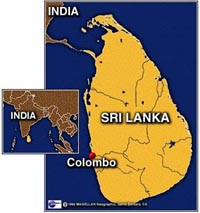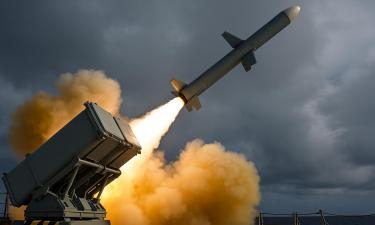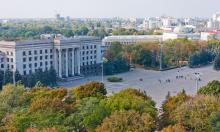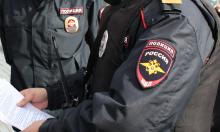Norwegian peace envoys to visit Sri Lanka
Two top international peace envoys will visit Sri Lanka this week for urgent meetings aimed at salvaging the country's tattered cease-fire and halting its slide toward all-out civil war, officials said Tuesday. A senior Tamil Tiger rebel leader said the envoys' chances were "bleak." Erik Solheim, who negotiated Sri Lanka's 2002 government-rebel cease-fire and is now Norway's international development minister, was set to arrive Thursday to join fellow envoy Jon Hanssen-Bauer, due a day earlier, said government spokesman Keheliya Rambukwella.

The envoys hope talks with government and rebel leaders will bring them back to peace talks that have stalled amid rising violence and recriminations between the sides. "They will talk to the parties to make them return to the table," Rambukwella said. "We are ready to resume the peace process." Senior rebel leader Seevaratnam Puleedevan said resuming peace talks is unlikely as long as attacks he blamed on the government were still being launched.
"The situation has not improved; violence against us is going on," Puleedevan said by the telephone from the rebel stronghold of Kilinochchi. "The prospects are bleak, but nevertheless let the Norwegian envoys discuss how the situation can be improved," he said. "We have to wait and see."
Meanwhile, the military said Tuesday that they found two powerful anti-personnel mines hidden in bushes in the northern Jaffna peninsula, a traditional ethnic Tamil homeland. The government has blamed the Tamil Tigers for a series of mine explosions that have killed dozens of security personnel since April. The rebels have denied involvement.
The government and the rebels held peace talks in Geneva in February for the first time in three years, but a second round slated for April was canceled after the two sides blamed rising violence on each other. Tensions rose again on Saturday, when Col. Ramanan, the Tigers' No. 2 leader and intelligence chief for eastern Sri Lanka, was killed in an ambush.
A breakaway Tamil group claimed responsibility, and the military denied involvement. But the mainstream rebels, known formally as the Liberation Tigers of Tamil Eelam, blamed the government. "LTTE considers this attack is intended to end all efforts toward peace and drag the LTTE into a major war," said a statement on a rebel Web site.
The rebel movement split in 2004, when one of its military commanders broke away with 6,000 fighters. The Tigers accuse the government of supporting the breakaway group in its attacks on the mainstream faction's fighters, and of letting it operate in government-controlled territory a charge the army denies.
A surge in violence has killed nearly 300 people since the beginning of April, raising fears that Sir Lanka is heading back to full-scale civil war. The Tigers have fought the government since 1983, demanding a separate homeland for the minority Tamils, claiming discrimination by the majority Sinhalese.
More than 65,000 people were killed before the 2002 cease-fire accord halted 19 years of open warfare. Meanwhile, the European Union on Tuesday urged the Sri Lankan government to find and prosecute those responsible for grenade attacks Sunday on the offices of three international aid groups, saying such "barbaric acts" must not go unpunished.
A Serbian aid worker and two passers-by were wounded in the simultaneous attacks Sunday in the northern town of Muttur in Trincomalee District. No one claimed responsibility. "The EU is concerned about the lack of effective follow up on past violent acts and the development of a culture of impunity," the organization said in a statement, reports the AP.
N.U.
Subscribe to Pravda.Ru Telegram channel, Facebook, RSS!



